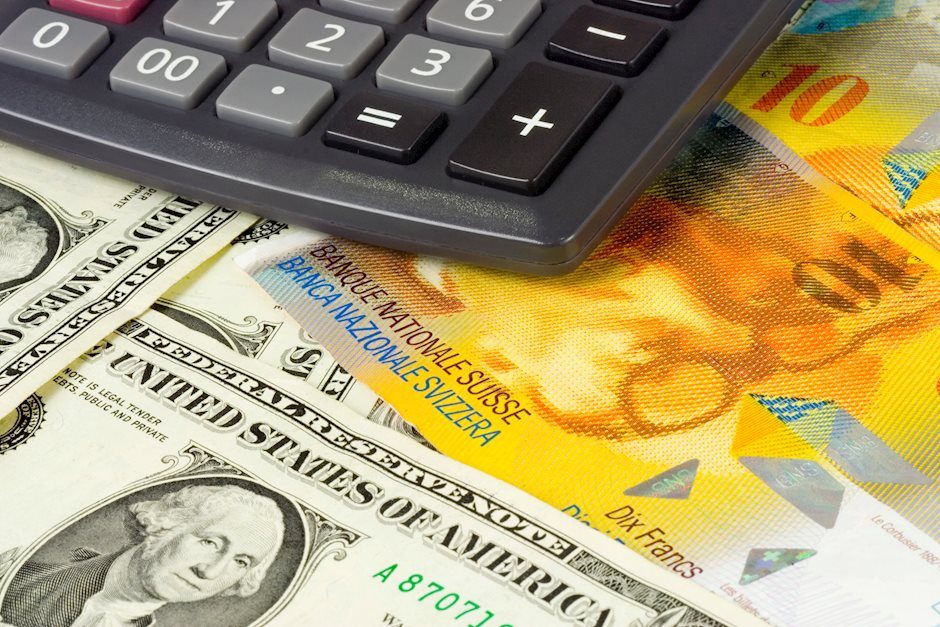USD/CHF extends upside above 0.8850, eyes on Fed rate decision
- USD/CHF holds positive ground around 0.8870 in Tuesday’s early European session.
- The Fed is expected to hold the rate at the current level of 5.25% to 5.50% on Wednesday.
- Uncertainty and the ongoing Middle East geopolitical tensions are likely to cap the Swiss Franc’s downside.

The USD/CHF pair extends the rally near 0.8870 during the early European session on Tuesday. The stronger US Dollar (USD) broadly provides some support to the pair. The market might turn cautious ahead of the US Federal Reserve (Fed) Interest Rate Decision on Wednesday.
The Federal Reserve will hold monetary policy meetings this week, with no change in rate expected. However, the markets widely anticipate the Fed will start easing its policy at its following meeting in September. With inflation easing faster than estimated in June, the markets have priced in nearly 64% odds that the Fed will cut rates three times this year — in September, November and December, according to the CME FedWatch.
"At the moment, a modest cut of 25 basis points in September seems likely. If that goes well, we could even see two additional 25 basis point cuts before 2024 comes to an end," said Jacob Channel, chief economist at LendingTree. Traders will take more cues from Fed Chair Jerome Powell during the press conference for the interest rate outlook. If the Fed officials deliver dovish comments, this might drag the Greenback lower and cap the upside for the pair.
On the Swiss front, uncertainty over the trajectory of the U.S. presidential race, the fear of a Chinese economic slowdown, and the ongoing geopolitical tensions in the Middle East might boost safe-haven flows, benefiting the Swiss Franc (CHF). Looking ahead, the Swiss KOF Leading indicator for July is due on Tuesday. On Friday, Switzerland’s Consumer Price Index (CPI) will be released, which is projected to show an increase of 1.3% YoY in June.
Traders would be cautious about betting on an even stronger CHF as long as the Swiss National Bank (SNB) does not initiate a change of rate direction. A further rate cut in September is now priced in nearly 90%, compared with just around 37% two weeks ago.
Swiss Franc FAQs
The Swiss Franc (CHF) is Switzerland’s official currency. It is among the top ten most traded currencies globally, reaching volumes that well exceed the size of the Swiss economy. Its value is determined by the broad market sentiment, the country’s economic health or action taken by the Swiss National Bank (SNB), among other factors. Between 2011 and 2015, the Swiss Franc was pegged to the Euro (EUR). The peg was abruptly removed, resulting in a more than 20% increase in the Franc’s value, causing a turmoil in markets. Even though the peg isn’t in force anymore, CHF fortunes tend to be highly correlated with the Euro ones due to the high dependency of the Swiss economy on the neighboring Eurozone.
The Swiss Franc (CHF) is considered a safe-haven asset, or a currency that investors tend to buy in times of market stress. This is due to the perceived status of Switzerland in the world: a stable economy, a strong export sector, big central bank reserves or a longstanding political stance towards neutrality in global conflicts make the country’s currency a good choice for investors fleeing from risks. Turbulent times are likely to strengthen CHF value against other currencies that are seen as more risky to invest in.
The Swiss National Bank (SNB) meets four times a year – once every quarter, less than other major central banks – to decide on monetary policy. The bank aims for an annual inflation rate of less than 2%. When inflation is above target or forecasted to be above target in the foreseeable future, the bank will attempt to tame price growth by raising its policy rate. Higher interest rates are generally positive for the Swiss Franc (CHF) as they lead to higher yields, making the country a more attractive place for investors. On the contrary, lower interest rates tend to weaken CHF.
Macroeconomic data releases in Switzerland are key to assessing the state of the economy and can impact the Swiss Franc’s (CHF) valuation. The Swiss economy is broadly stable, but any sudden change in economic growth, inflation, current account or the central bank’s currency reserves have the potential to trigger moves in CHF. Generally, high economic growth, low unemployment and high confidence are good for CHF. Conversely, if economic data points to weakening momentum, CHF is likely to depreciate.
As a small and open economy, Switzerland is heavily dependent on the health of the neighboring Eurozone economies. The broader European Union is Switzerland’s main economic partner and a key political ally, so macroeconomic and monetary policy stability in the Eurozone is essential for Switzerland and, thus, for the Swiss Franc (CHF). With such dependency, some models suggest that the correlation between the fortunes of the Euro (EUR) and the CHF is more than 90%, or close to perfect.
Author

Lallalit Srijandorn
FXStreet
Lallalit Srijandorn is a Parisian at heart. She has lived in France since 2019 and now becomes a digital entrepreneur based in Paris and Bangkok.

















